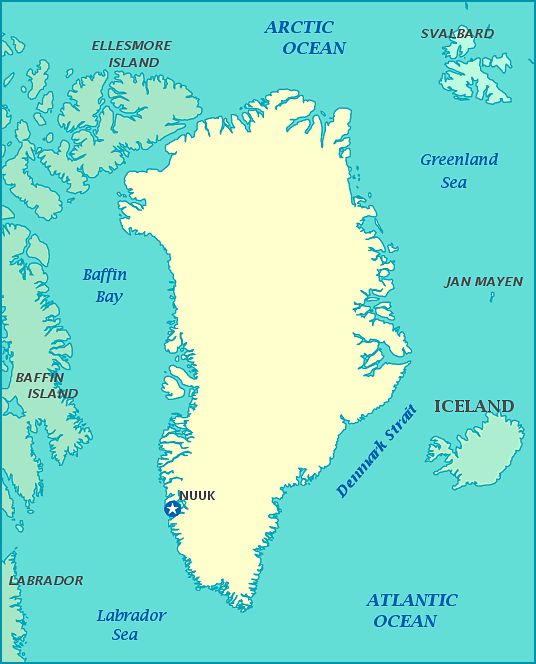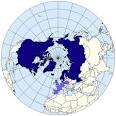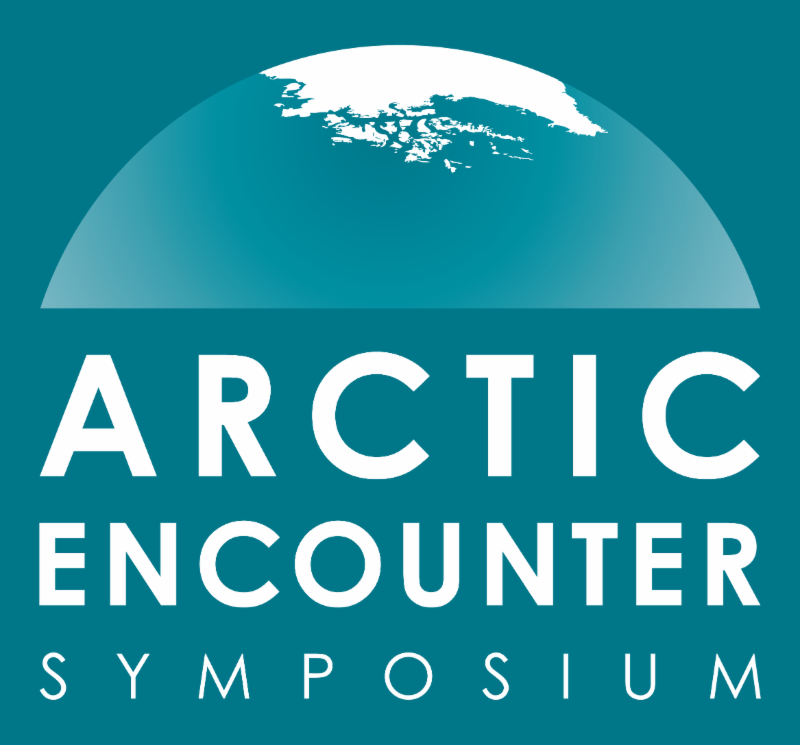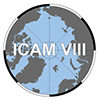|
|
|
|
|
|
|
|
Ghosts of Caribou Herds Past: Evaluating Historical Herd Crashes Using Genetics and Indigenous Knowledge, April 17, 2018, noon - 1:30 pm (Washington, DC USA-- National Museum of Natural History, Smithsonian Institution, 10th and Constitution Ave., NW, ground floor, Q?rius Theater). This lecture will extend upon and dialogue in order to further illuminate the links between past caribou and reindeer herds and the animals inhabiting Alaska today. To research historical caribou herds as well as their interactions with reindeer, I conducted oral history interviews with Inupiat reindeer herders and examined primary historical sources and their interpretation by various authors. Next, I formulated predictions about the population genetic patterns we would expect to find if each alternative historical hypothesis were correct. Finally, I used genetic data from modern herds to evaluate each prediction and provide new understandings of historical caribou herds crashes and reindeer-caribou interactions.
|
Media
Russia's Arctic Development Push Starts with Military Muscle. Russian President Vladimir Putin has made development of the Arctic a key priority for his current term in office. Submarines, ice-breakers and military hardware have been deployed in the region as the Kremlin vows to 'defend its interests'. In the city of Vorkuta; high above the Arctic Circle, Moscow's plans have been greeted with cautious optimism. Voice of America
 Arctic Ocean May Have Been Covered by an Ice Shelf Nearly Double the Size of Greenland's Ice Sheet. Arctic Ocean May Have Been Covered by an Ice Shelf Nearly Double the Size of Greenland's Ice Sheet. An ice shelf over a kilometer thick once formed over the Arctic Ocean, a new study by researchers from the University of Sheffield has revealed. The study is the first of its kind and strongly supports the theory that a floating ice shelf might have formed in the Arctic Ocean during some of the Earth's Ice Ages. Phys.org
Ilya Muroments Tests Commence in Barents Sea. On April 12, tests of the Northern Fleet's icebreaker Ilya Muromets got underway in the eastern sector of the Barents Sea, according to fleet press service chief Vadim Serga. "The Northern Fleet's state-of-the-art diesel-electric icebreaker Ilya Muromets is now being tested in ice formations in the eastern sector of the Barents Sea. The vessel has approached the ice boundary the location of which matches the average data obtained during long-term observations," Serga said. The Arctic
Rosatomflot Seeks Arctic Sea Ice Forecast Through Mid-Century. The Russian nuclear ice-breaker fleet, Rosatomflot, has launched an open tender for an Arctic sea ice forecast for a period from 2030 to 2050. The forecast is necessary to plan ship navigation along the Northern Sea Route (NSR), Russian State Nuclear Energy Corporation (Rosatom) says on its procurement website. The forecast must contain, among other things, the assessment of the current state of Arctic sea ice and its past evolution beginning from the first satellite-based records in the late 1970s, as well as the analysis of the causes and mechanisms of climate change taking place in the Arctic and on Earth in general, including human impact. The Arctic
 Virtual Contact Lenses for Radar Satellites. Virtual Contact Lenses for Radar Satellites. Radar satellites supply the data used to map sea level and ocean currents. However, up until now, the radar has been ineffective in regions where the oceans are covered by ice. Researchers at the Technical University of Munich (TUM) have now developed a new analysis method to solve this problem... changes in sea level and ocean currents in the ice-covered regions of the Arctic and Antarctic in particular are very difficult to detect. The reason: The radar signals of existing altimeter satellites are reflected by the ice at the poles. This renders the water underneath the ice invisible. Phys.org
|
|
Future Events
** New this week ** Examining the Implications of China's Arctic Policy White Paper, April 18, 2018 (Washington, DC USA and webinar). Hong Nong of the Institute for China-America Studies will present this seminar as part of the Arctic Research Consortium of the US's (ARCUS) Arctic Research Seminar. The State Council Information Office of China published a white paper titled "China's Arctic Policy" on January 26, 2018. China's policy goals in the Arctic are shaped by four key principles-to understand, protect, develop and participate in the governance of the Arctic. In order to realize these policy goals, the white paper emphasizes the need for "respect, cooperation, win-win result and sustainability." These policy goals and principles are reflected in the respective areas that China has shown interest in, ranging from participating in Arctic governance affairs, promoting bilateral diplomacy in the Arctic area, accessing potential resources to exploiting shipping opportunities and undertaking polar research. China's Arctic strategy is just beginning and it still faces many challenges, including the Arctic States' disputes over territorial sovereignty, vigilance among certain countries, constraints from the United National Convention of the Law of the Sea (UNCLOS), the natural environment in the Arctic region and China's technological constraints. Nevertheless, with China's newly released Arctic policy white paper, China has emphasized a key theme-cooperation.
 5th Annual Arctic Encounter Symposium (AES), April 19-20, 2018 (Seattle, WA, USA). 5th Annual Arctic Encounter Symposium (AES), April 19-20, 2018 (Seattle, WA, USA). The Arctic Encounter, the largest annual Arctic policy conference in the U.S., will convene policymakers, industry leaders, scientists, Arctic artists and musical performers, and other stakeholders to debate and discuss emerging Arctic challenges and opportunities including policy, innovation, security, and development. The mission of AES is to raise awareness, engage challenges, and develop solutions for the future of the Arctic region and the people who live there. The 5th annual AES will take place in downtown Seattle at the Bell Harbor International Conference Center on Pier 66.
2018 North by North Festival, April 23-29, 2018 (Anchorage, Alaska USA). The North by North Festival captures the spirit of Alaska and the Arctic - to address our challenges and opportunities with Northern innovation and resilience, to build on a rich history and to ensure a future full of promise. The Festival is for the North, and organized by Northerners, with goals of sustainability, livability and growth. The Festival brings innovators from across Alaska, the nation and other Arctic regions to collaborate and address local and circumpolar challenges. Through knowledge, governance, business, design, film, music, food, literature and art, we celebrate the North.
IARPC Collaborations Webinar Series: Creating a National Scientific Mission: The Nansen Legacy Project, April 24, 2018 (Webinar). The Nansen Legacy project breaks new ground in national-scale Arctic research collaborations, forming a national team representing nearly Norway's entire marine Arctic expertise including 130 scientists, 50 new recruiting positions and Norway's new research icebreaker. This $97 million project for the exploration and understanding of Norway's ice-covered water and adjacent Polar Ocean commenced in 2018 and will run for six years. This unique collaboration required the development of new evaluation and financing strategies, challenging research institutions and government. It presents a step towards the future cooperation between the five Arctic coastal states in order to comprehend the entirety of the Arctic Ocean. Webinar featuring Dr. Paul Wassman commences April 24, 2018, 12:30 PM Eastern Time. More info at https://www.iarpccollaborations.org/webinars.html
2018 Anchorage Arctic Research Day, April 26, 2018 (Anchorage, Alaska USA). This event is held in conjunction with the 2018 North by North Festival. It is organized by the Arctic Research Consortium of the US, the University of Alaska Anchorage, the Anchorage Museum, and the Institute of the North. This gathering will include participants from government, corporate, academic, not-for-profit, and Indigenous groups, and will feature oral panel discussions by leading researchers across the natural and social sciences, health, engineering, humanities, the arts, and governance. The day will also feature both formal and informal activities to encourage networking and robust roundtable discussions to encourage collaborations across the boundaries of discipline, organization, and sector.
Council on Earth Cryology, May 15-16, 2018 (Moscow, Russian Federation). Scientific council on Earth cryology of Russian Academy of Sciences together with Department of Geocryology of Faculty of Geology of Lomonosov Moscow State University, Institute of the Earth Cryosphere, the Tyumen Scientific Senter, Melnikov Permafrost Institute (Yakutsk) of the Siberian Branch of the Russian Academy of Science holds on May 15 - 16, 2018 an enlarged meeting with participation of the Russian and foreign scientists, engineers and experts: "Current problems of geocryology." The meeting of Scientific council on Earth Cryology of RAS has the status of the International meeting. The publication of materials in the collection of reports is planned. Submissions (Submission Form), offers on cooperation, support of a conference and papers (Sample of Paper) to e-mail: cryoconf18@gmail.com
- Addressing the energy field of the future;
- Defense energy systems in the North;
- Natural hazards and aerospace/defense;
- Empowering Alaska's entrepreneurs;
- Navigating the changing Arctic; and,
- Developing local and global energy solutions.
The Effects of Climate Change on the World's Oceans, June 4-8, 2018 (Washington, DC USA). The 4th International Symposium will bring together experts from around the world to better understand climate impacts on ocean ecosystems - and how to respond. The event is hosted by a variety of groups including International Council for the Exploration of the Sea (ICES), N. Pacific Marine Science Organization (PICES), Intergovernmental Oceanographic Commission of UNESCO (IOC), and Food and Agriculture Organization of the United Nations (FAO).
 POLAR 2018, June 15-27, 2018 (Davos, Switzerland). POLAR2018 is a joint event from the Scientific Committee on Antarctic Research (SCAR) and the International Arctic Science Committee (IASC). The SCAR meetings, the ASSW and the Open Science Conference will be hosted by the Swiss Federal Institute for Forest, Snow and Landscape Research WSL under the patronage of the Swiss Committee on Polar and High Altitude Research. The WSL Institute for Snow and Avalanche Research SLF is organizing POLAR2018. POLAR 2018, June 15-27, 2018 (Davos, Switzerland). POLAR2018 is a joint event from the Scientific Committee on Antarctic Research (SCAR) and the International Arctic Science Committee (IASC). The SCAR meetings, the ASSW and the Open Science Conference will be hosted by the Swiss Federal Institute for Forest, Snow and Landscape Research WSL under the patronage of the Swiss Committee on Polar and High Altitude Research. The WSL Institute for Snow and Avalanche Research SLF is organizing POLAR2018.
5th European Conference on Permafrost, June 23-July 1, 2018 (Chamonix-Mont Blanc, France). In the continuation of the International and Regional conferences convened by the International Permafrost Association, the 5th European Conference on Permafrost (EUCOP 2018) will be held in Chamonix-Mont Blanc, France, 23rd June - 1st July 2018. The conference aims at covering all relevant aspects of permafrost research, engineering and outreach on a global and regional level. Conference website: here.
Arctic Observing Summit 2018, June 24-26, 2018 (Davos, Switzerland). The Arctic Observing Summit (AOS) is a high-level biennial summit that provides a platform to address urgent and broadly recognized needs of Arctic observing across all components of the Arctic system. AOS 2018 will be held in Davos, Switzerland ( June 24-26) and will focus on pressing issues in the implementation and support of sustained observations that can be addressed through a business-case lens. To that end, short submissions are requested that address any and all aspects of the overarching theme and sub-themes. Additional information can be found here.
17th International Congress of Circumpolar Health (ICCH17), August 12-15, 2018 (Copenhagen, Denmark). The ICCH congresses are held every third year in different locations in the circumpolar area and represent the largest scientific meetings worldwide on circumpolar health. The ICCH congresses serve as the primary source of information exchange and scholarly communication in issues relating to circumpolar health. More than 750 participants generally register and participate in each Congress, and more than 400 scientific papers or posters are usually presented.
UArctic Congress 2018, September 3-7, 2018 (Oulu and Helsinki, Finland).
The UArctic Congress 2018 will bring together key UArctic meetings and a science conference into one single gathering, including business meetings of the Council of UArctic, Rectors' Forum, Student Forum, and Thematic Networks & UArctic Institutes Leadership Team. The Congress is an integral part of the Finland's Arctic Council chairmanship program, and open to the public. The event will highlight the themes and priorities of the Finnish chairmanship, including the goals of the United Nations' 2030 Agenda for Sustainable Development, and the Paris Agreement under the UN Framework Convention on Climate Change.
The second Arctic Biodiversity Congress is hosted by the Conservation of Arctic Flora and Fauna (CAFF), the biodiversity working group of the Arctic Council, and the Ministry of the Environment, Finland. The second Arctic Biodiversity Congress will build on the success of the first Congress, held in 2014 in Trondheim, Norway, and will bring together scientists, policymakers government officials, Indigenous representatives, Traditional Knowledge holders, industry, non-governmental organizations, and others to promote the conservation and sustainable use of Arctic biodiversity.
|
|

  
4350 N. Fairfax Drive, Suite 510
Arlington, VA 22203, USA
External links in this publication, and on the USARC's World Wide Web site ( www.arctic.gov) do not constitute endorsement by the US Arctic Research Commission of external Web sites or the information, products or services contained therein. For other than authorized activities, the USARC does not exercise any editorial control over the information you may find at these locations. These links are provided consistent with the stated purpose of this newsletter and the USARC Web site.
|
|
|
|
|
|
|
|
|
 Arctic Ocean May Have Been Covered by an Ice Shelf Nearly Double the Size of Greenland's Ice Sheet. An ice shelf over a kilometer thick once formed over the Arctic Ocean, a new study by researchers from the University of Sheffield has revealed. The study is the first of its kind and strongly supports the theory that a floating ice shelf might have formed in the Arctic Ocean during some of the Earth's Ice Ages. Phys.org
Arctic Ocean May Have Been Covered by an Ice Shelf Nearly Double the Size of Greenland's Ice Sheet. An ice shelf over a kilometer thick once formed over the Arctic Ocean, a new study by researchers from the University of Sheffield has revealed. The study is the first of its kind and strongly supports the theory that a floating ice shelf might have formed in the Arctic Ocean during some of the Earth's Ice Ages. Phys.org Virtual Contact Lenses for Radar Satellites. Radar satellites supply the data used to map sea level and ocean currents. However, up until now, the radar has been ineffective in regions where the oceans are covered by ice. Researchers at the Technical University of Munich (TUM) have now developed a new analysis method to solve this problem... changes in sea level and ocean currents in the ice-covered regions of the Arctic and Antarctic in particular are very difficult to detect. The reason: The radar signals of existing altimeter satellites are reflected by the ice at the poles. This renders the water underneath the ice invisible. Phys.org
Virtual Contact Lenses for Radar Satellites. Radar satellites supply the data used to map sea level and ocean currents. However, up until now, the radar has been ineffective in regions where the oceans are covered by ice. Researchers at the Technical University of Munich (TUM) have now developed a new analysis method to solve this problem... changes in sea level and ocean currents in the ice-covered regions of the Arctic and Antarctic in particular are very difficult to detect. The reason: The radar signals of existing altimeter satellites are reflected by the ice at the poles. This renders the water underneath the ice invisible. Phys.org



